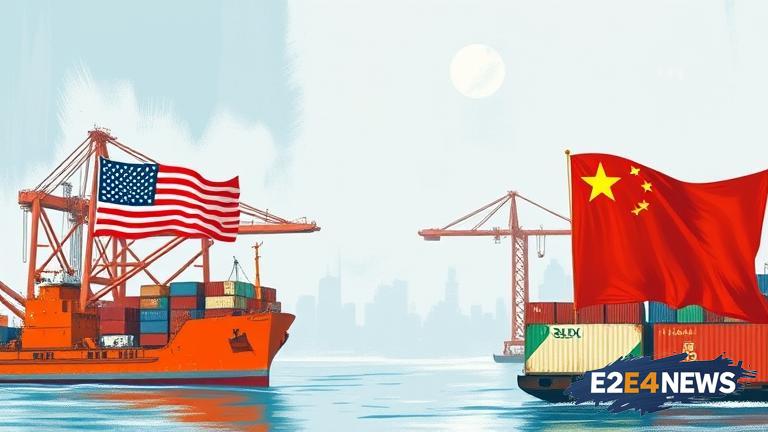The ongoing trade tensions between the US and China have created a sense of uncertainty among India’s exporters, who are worried about the potential impact on their businesses. The US has imposed tariffs on a wide range of Chinese goods, including electronics, machinery, and textiles, in an effort to reduce its trade deficit with China. China has retaliated by imposing its own tariffs on US products, including soybeans, aircraft, and automobiles. India’s exporters are concerned that they may be caught in the crossfire, with the US potentially imposing penalties and tariffs on Indian goods in an effort to pressure China. The Indian government has been trying to capitalize on the trade tensions by promoting its own exports, particularly in the areas of textiles, pharmaceuticals, and IT services. However, the uncertainty surrounding the trade tensions has made it difficult for Indian exporters to plan for the future. The US-China trade war has also led to a decline in global trade, which has had a negative impact on India’s exports. India’s exports have been growing at a slow pace in recent months, and the trade tensions have added to the challenges faced by the country’s exporters. The Indian government has been trying to diversify the country’s exports by promoting trade with other countries, including those in Southeast Asia and the Middle East. However, the US-China trade war has made it difficult for India to achieve its export targets. The trade tensions have also led to a decline in foreign investment in India, which has had a negative impact on the country’s economy. The Indian government has been trying to attract more foreign investment by offering incentives and improving the business environment. However, the uncertainty surrounding the trade tensions has made it difficult for the government to achieve its goals. The US-China trade war has also had a negative impact on the global economy, with many countries experiencing a decline in trade and economic growth. The International Monetary Fund (IMF) has warned that the trade tensions could lead to a global recession if they are not resolved soon. The Indian government has been trying to work with other countries to resolve the trade tensions and promote free trade. However, the US-China trade war has made it difficult for the government to achieve its goals. The trade tensions have also led to a decline in the value of the Indian rupee, which has made it difficult for the country’s exporters to compete in the global market. The Indian government has been trying to stabilize the currency by intervening in the foreign exchange market. However, the uncertainty surrounding the trade tensions has made it difficult for the government to achieve its goals. In conclusion, the US-China trade war has created a sense of uncertainty among India’s exporters, who are worried about the potential impact on their businesses. The Indian government has been trying to promote the country’s exports and attract more foreign investment, but the trade tensions have made it difficult to achieve its goals.





